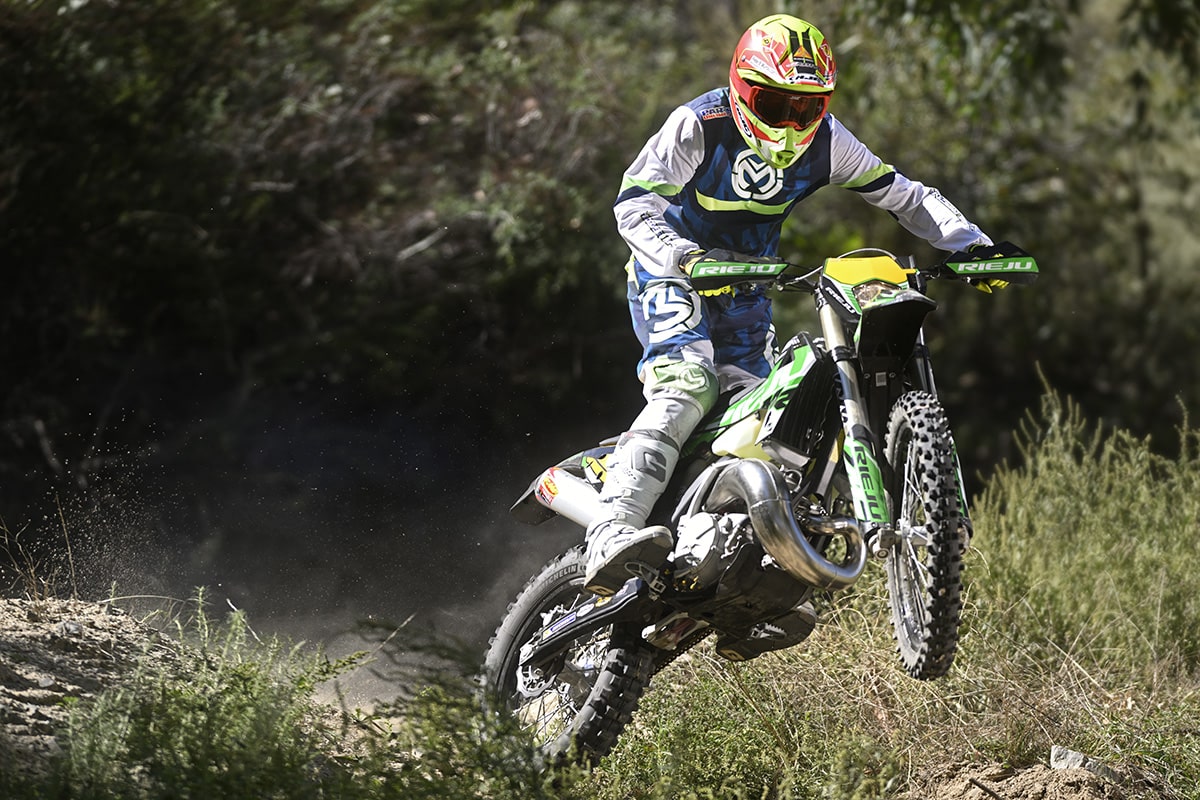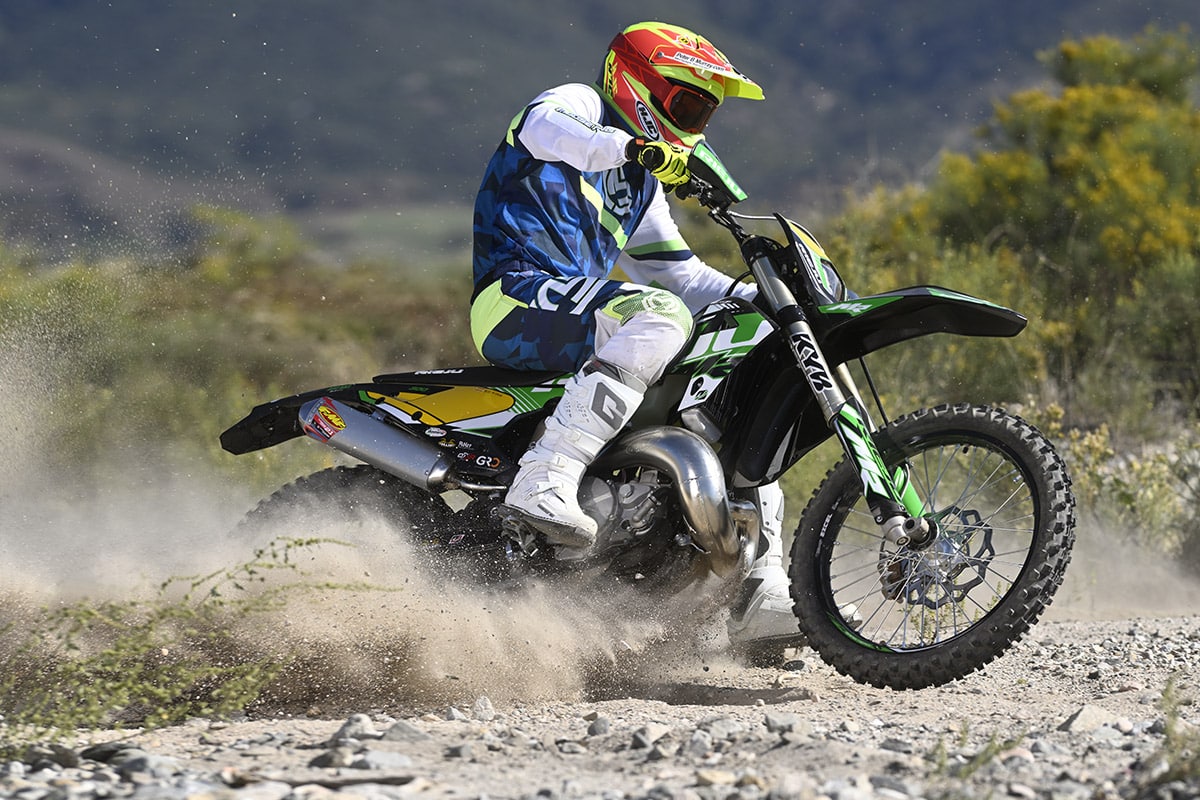The grace period has officially concluded. If you’re not familiar with Rieju, now is the time to pay attention. In just three years, the Spanish company has solidified its presence in the off-road scene. Alfredo Gomez, a two-time Erzbergrodeo winner, made the switch to a Rieju 300 two-stroke this year, making a mark in the World Hard Enduro Series.
Dominik Olszowy also joined the Rieju ranks in the EnduroCross series, adding to the growing recognition of the brand. With dealers now present in approximately 25 states, the Rieju 300MR Racing is at the forefront, gaining attention as a competitive 300cc two-stroke for serious off-road enthusiasts.
The Rieju 300MR Racing comes with an MSRP of $9,699, offering a more affordable option compared to its Austrian counterparts. However, it’s essential to note that the bike was not designed with the budget market in mind.

The roots of Rieju trace back almost 30 years under the name “GasGas.” In 1999, GasGas expanded from trials to off-road, influencing subsequent 300cc two-strokes. Facing challenges in 2015, Torrot, an electric scooter company from Barcelona, invested in GasGas.
A redesign of the chassis ensued, with accusations of similarities to KTM’s design. In 2019, Pierer Mobility stepped in, leading to the sale of GasGas off-road bike rights to Rieju. Under new management, the former GasGas bikes, now Rieju, have reached their full potential.
Rieju’s takeover brought about significant improvements in quality control. Collaborative efforts with KTM and GasGas during the transition period resulted in enhanced manufacturing techniques.
The 300MR boasts top-tier components, featuring Nissin brakes, FMF exhaust, KYB suspension, and a Magura hydraulic clutch. Contrary to some misconceptions, Rieju targets the premium market, emphasizing quality with established designs.
While the Rieju’s motor lacks high-tech features like fuel injection and electronic power valves, its reliance on proven designs proves to be its strength. The steel frame exhibits KTM influence, embracing an old-school feel that contrasts with modern advancements.
The carbureted Rieju demands a return to old motorcycle rituals, with a familiar process of turning on the gas petcock and pulling the choke.
The bike’s quick-starting capability, smooth clutch, tight gearbox, and light throttle return spring contribute to a quality riding experience. The 300MR’s 38mm Keihin PWK carburetor is a benchmark for two-stroke carburetors.
Known for its exceptional low-rpm performance, the 300MR’s mid-range and top-end are in line with modern two-strokes. Its powerband, while feeling flat on top, remains clean and crisp throughout. The mechanical power valve, operated by a centrifugal ball-ramp device, harkens back to the original GasGas influence.
Addressing the frame’s resemblance to a 2015 KTM steel frame, the influence is evident, though not an exact copy. The 300MR strikes a balance between agility and forgiveness with a handling package suitable for a range of terrains. Weighing 245 pounds without fuel, the bike’s weight is reasonable but not optimal.
The suspension setup may appear race-oriented initially, with firmness at both ends. Adjustments may be necessary based on individual riding preferences and terrains. The Rieju’s KYB shock and closed-cartridge fork provide a solid foundation for customization by local suspension experts.
In conclusion, the Rieju 300MR is positioned as the right bike for the current off-road landscape. While competitors delve into cutting-edge technology, Rieju adheres to traditional designs that have stood the test of time. In a market where two-stroke off-road riders remain devoted, the Rieju 300MR maintains its relevance and legacy, rooted in the trials bike world from 30 years ago.

